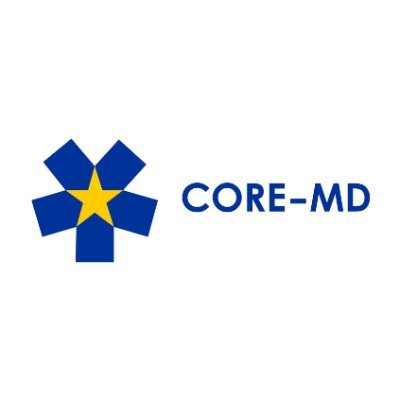About EAP
European Academy of Paediatrics
The European Academy of Paediatrics (EAP) is the united voice of European Paediatrics and Child Health, representing 53 national paediatric societies across Europe and 14 European paediatric subspecialty societies, with close collaboration to a further 14 affiliated societies dedicated to Child Health.

Our Vision and Mission
The European Academy of Paediatrics exists to promote the health of children and young people in Europe. It aims to improve standards in training, service and research and to represent the professional interests of paediatricians in the EU. It closely collaborates with the European Union of Medical Specialists and therefore has influence in the political arena to advocate for children and young people as well as for the profession.
Our Members
Partnerships
Partnerships are established with organisations whose views and practices are consistent with EAP’s values. These collaborations must uphold mutual respect, trust, and clearly defined principles, ensuring EAP’s core integrity remains uncompromised.
All partnerships are transparently disclosed, and EAP remains accountable to its members and the public, demonstrating that no undue influence affects its policies or practices.
EAP Guiding Principles
European Academy of Paediatrics (EAP) Adopts The Following Guiding Principles
EAP’s guiding principles with regard to partnerships, sponsorship and conflicts of interest aim to increase EAP’s potential to access funds, services in kind and joint venture operations from public bodies, firms or foundations in ways that do not contravene the principles and values of EAP and its members.
It does not aim to provide a definition of every possible funding opportunity or relationship but rather define a set of operating principles.
The guiding principles comply with the objectives and mission of EAP: The European Academy of Paediatrics exists to promote the health of children and young people in Europe.
EAP is a not-for-profit and non-governmental Association that intends to maintain a high level of independence and integrity. This will allow EAP to position itself in public health and health care policy without being influenced by vested interests.

Sponsorship
More Info
The following applies to all sources of financing.
EAP shall accept funding from organisations that hold views and practices that are not contrary to EAP’s mission and values.
EAP will only accept funding that does not compromise its core principles and does not restrict its ability to address relevant issues freely, thoroughly and objectively in private and public forums.
EAP will not accept funding from organisations engaged in the manufacture and/or marketing of commercial products whose sale is against EAP’s mission (for example: tobacco, alcohol, arms, unhealthy food, etc).
Funding from public sources may be directed at EAP’s core functions or specific projects or activities. Core functions concern the Private sponsorship can only take the form of financial support for specific projects or activities.
Grants of this kind shall be unrestricted and unconditional. When financial support is approved, a contract or memorandum of understanding between EAP and the organisation will be agreed and signed by authorised parties detailing length of time for the agreement, contribution value, joint activities and deliverables to be achieved, with a start and end date. This agreement will ensure that no restrictions or conditions are imposed by the sponsors which would affect the content of the project and/ or activities.
Private sponsorship can only take the form of financial support for specific projects or activities. Grants of this kind shall be unrestricted and unconditional. When financial support is approved, a contract or memorandum of understanding between EAP and the organisation will be agreed and signed by authorised parties detailing length of time for the agreement, contribution value, joint activities and deliverables to be achieved, with a start and end date. This agreement will ensure that no restrictions or conditions are imposed by the sponsors which would affect the content of the project and/ or activities.
EAP should always be able to prove to its members and the public that the sponsorship does not exert any influence on its own policies and practices. EAP will ensure that its independence and integrity are preserved in any financial relationship with another organisation.
In order to avoid the risk of being identified with one single vested interest, EAP aims to diversify the sources of funding as much as possible.
Corporate partners or private sponsors shall at no time make use of the name, or logo of EAP, or make any claim of association with EAP without EAP’s prior agreement.
Procedure for partnership and sponsorship agreements
Partnership and sponsorship opportunities will be assessed by EAP’s Executive Committee on a case by case basis, while respecting the above mentioned principles. The conclusions of their assessment will be circulated amongst EAP members.
When approached by, or when approaching, an organisation/agency for funding, EAP will request information about the organisation, including their principal activities, their products or services. EAP will also undertake its own research about the organisation/agency, notably about the nature of the organisation; the nature of its products; the sources of its product; the means used to promote the product, or the consequences of these processes.
When financial support is approved, a contract or memorandum of understanding between EAP and the organisation will be agreed and signed by authorised parties detailing length of time for the agreement, contribution value, joint activities and deliverables to be achieved, with a start and end date.
When weighing up whether or not to accept funding from commercial organisations/ agencies, grant making bodies or individuals, the following should be considered: the nature of the organisation; the nature of its products; the sources of its product; the means used to promote the product, or the consequences of these processes, and whether these are compatible with the principles outlined in the present document.
Any financial support by commercial companies will appear in EAP’s reports to members and the public and other relevant documents.
Conflict of interests of the Executive Committee and its members
The Executive Committee is responsible for the strategic directions, the setting of priorities and the programming of EAP’s activities, including the determination of the annual work program. Also, the Executive Committee members assist in fundraising and representation activities.
Members of the Executive Committee shall therefore declare, annually, any interest and function, be it corporate or institutional and declare any (potential) conflict of interest which may arise throughout the duration of their service on the Executive Committee.


